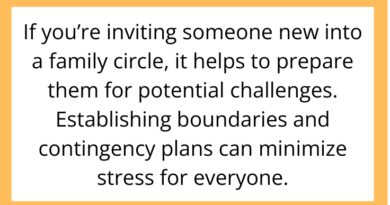AITAH for Not Paying for My Girlfriend’s Birthday Trip After She Invited Her Friends Without Asking Me?
Relationships thrive on communication—but what happens when one partner makes a big decision without the other’s input, and expects them to foot the bill? In this AITAH-inspired story, a boyfriend is left feeling blindsided when his girlfriend turns their romantic getaway into a group vacation—with him still expected to pay for it all.
Is he wrong for pulling out? Or is this a case of misplaced entitlement? Let’s break it down.
The Story: A Surprise… for the Wrong Person

A 28-year-old man—we’ll call him Sam—shared his story on the r/AITAH subreddit. He and his girlfriend, Leena (27), had been together for almost two years. For Leena’s birthday, Sam wanted to do something special: he booked a weekend getaway at a luxury beach resort.
Everything was paid for—travel, accommodation, activities. Sam planned to surprise Leena and even told her to keep the weekend free without giving too many details.
That’s when things got complicated.
A week before the trip, Leena excitedly told Sam that she had invited three of her closest friends to join them at the resort. She thought it would be “more fun” with her girlfriends there and assumed Sam wouldn’t mind footing the bill, since it was “his treat.”
Sam was stunned.
The Conflict: A Change in Plans—and Budget

Sam calmly explained that the trip was meant to be a romantic weekend for the two of them, not a group vacation. He hadn’t budgeted for additional guests and certainly hadn’t agreed to pay for three more people.
Leena didn’t take it well. She accused Sam of being selfish, cheap, and making her birthday “all about him.” Her friends also began chiming in, calling Sam controlling and saying he was embarrassing Leena by “backing out.”
Feeling manipulated and financially pressured, Sam canceled the trip altogether.
Now, he’s wondering: AITAH for canceling the birthday trip after my girlfriend invited people without asking me?
Respecting Boundaries vs. Avoiding Conflict

The Case for Sam: Communication Matters
Sam had every right to be upset. Planning a surprise trip takes effort, money, and thoughtfulness. By inviting others without consulting him, Leena not only disrespected the surprise, but also changed the intention behind the trip completely.
A romantic getaway and a group vacation are two entirely different experiences—emotionally, logistically, and financially. Sam wasn’t trying to be stingy; he was setting a boundary after his plans were overridden.
His decision to cancel the trip wasn’t reactive—it was protective.
The Case for Leena: Birthday Expectations?
From Leena’s perspective, maybe she genuinely thought including friends would make the weekend more memorable. Some people thrive in group settings and may feel more celebrated in a crowd.
However, assuming that Sam would pay for everyone without discussing it was, at best, naïve and at worst, entitled.
If she wanted a group celebration, the couple should have discussed it together—not sprung it on the planner.
Reddit Reacts: Who’s Really in the Wrong?
The r/AITAH community overwhelmingly took Sam’s side.
Top comments called out Leena’s behavior as manipulative.
“You didn’t back out. You adjusted after she changed the plans,” one user wrote. “Inviting guests without asking and expecting you to pay is wild.”
Others suggested that this incident was a red flag—highlighting deeper issues around entitlement, control, and mismatched communication styles.
Still, a minority argued that canceling the entire trip may have been extreme and that there might’ve been a middle ground—like asking Leena’s friends to pay their share or going on a separate couple’s getaway later.
Red Flags and Relationship Lessons

This situation raises a few important points for couples everywhere:
1. Surprises Are a Two-Way Street
Planning something special doesn’t mean your partner gets to rewrite it without consultation—especially if it affects money or mood.
2. Financial Clarity Is Crucial
Assuming someone will cover costs for others is dangerous territory. Even in long-term relationships, transparency about budgets and expectations is vital.
3. Boundaries Are Not Betrayals
Sam didn’t cancel the trip to punish Leena. He did it because his boundary—emotional and financial—was crossed. Healthy relationships thrive when those boundaries are respected.
Could It Have Been Handled Differently?

What Sam Could Have Done:
-
Set clearer expectations when planning a surprise.
-
Suggested splitting costs if Leena really wanted her friends there.
-
Postponed the romantic trip instead of canceling entirely.
What Leena Could Have Done:
-
Asked before inviting anyone.
-
Considered the financial and emotional implications.
-
Appreciated the original gesture rather than trying to change it.
The Verdict: Clear Communication Wins

So, is Sam the villain for canceling the trip? Most would say no.
He planned something thoughtful, and Leena changed it without his consent. While canceling may feel dramatic, it was likely the best way for him to protect his time, money, and emotions.
This AITAH scenario reminds us that love doesn’t mean saying yes to everything—it means honoring your partner’s effort and respecting the relationship enough to communicate clearly.



